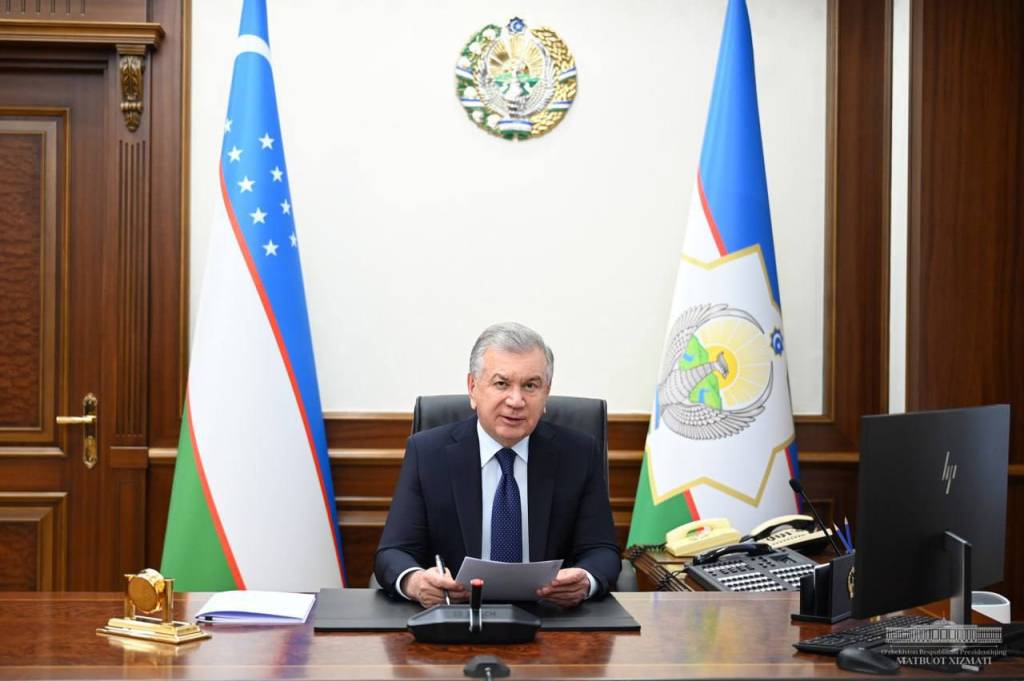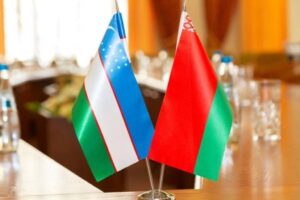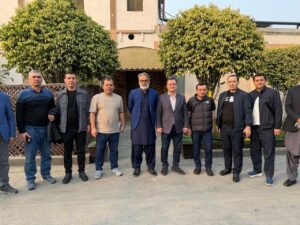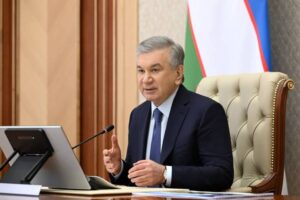President Shavkat Mirziyoyev Reviews Ambitious Environmental Roadmap for Uzbekistan

Tashkent, The Gulf Observer: President Shavkat Mirziyoyev recently attended presentation outlining the ongoing environmental initiatives and future plans for ecology and environmental protection in Uzbekistan. The comprehensive overview touched upon significant milestones, international collaborations, and groundbreaking projects aimed at sustainable environmental management.
A key highlight was the successful hosting of the 14th Meeting of the Conference of the Parties to the Convention on the Conservation of Migratory Species of Wild Animals (CMS COP14) in Samarkand from February 12 to 17. This event garnered participation from over 2,000 representatives spanning more than 130 countries. The outcome of the conference included the approval of the Samarkand Strategic Plan for Migratory Species of Wild Animals (2024-2032) and the launch of the Global Partnership on Ecological Connectivity (GPEC) initiative. Uzbekistan’s presidency of the UN convention for 2024-2026, the opening of the first International Union for Conservation of Nature (IUCN) office in Central Asia in Tashkent, and an agreement to establish a representative office of the UN Environment Program in Uzbekistan were among the noteworthy achievements.
President Mirziyoyev instructed continued cooperation in environmental conservation, the development of an action plan for Uzbekistan, initiation of new grant projects, and advanced training for personnel in international environmental organizations and the convention’s headquarters.
The presentation also showcased the “Restoration of Sustainable Forest Landscapes in Uzbekistan” project. With a budget exceeding $205 million and spanning six years, the project aims to expand forest areas, enhance forestry infrastructure, implement sustainable management practices, and develop ecotourism infrastructure. The plan includes introducing innovative management systems and information technology for forest restoration, restoring degraded forest lands, and fostering cooperation with neighboring countries to rejuvenate landscapes in border areas.
In parallel, the President discussed the implementation of the Decree issued on January 4, 2024, focusing on improving the waste management system. Acknowledging Uzbekistan’s annual generation of approximately 6.8 million tons of household waste, the President emphasized the need for enhanced recycling efforts. Measures include organizing separate waste collection, sorting into categories, stimulating private partnerships in waste collection and recycling, and strengthening penalties for improper waste disposal. The introduction of special economic zones in the buffer zones of waste landfills, coupled with the creation of a system for producing electricity and organic fertilizers from burning waste, was also highlighted. The first pilot project for this innovative system will be implemented in the Andijan region.
The overarching goal is to revolutionize waste management, increase recycling rates, and usher in a new era of sustainable environmental practices, aligning Uzbekistan with global standards for ecological responsibility.


